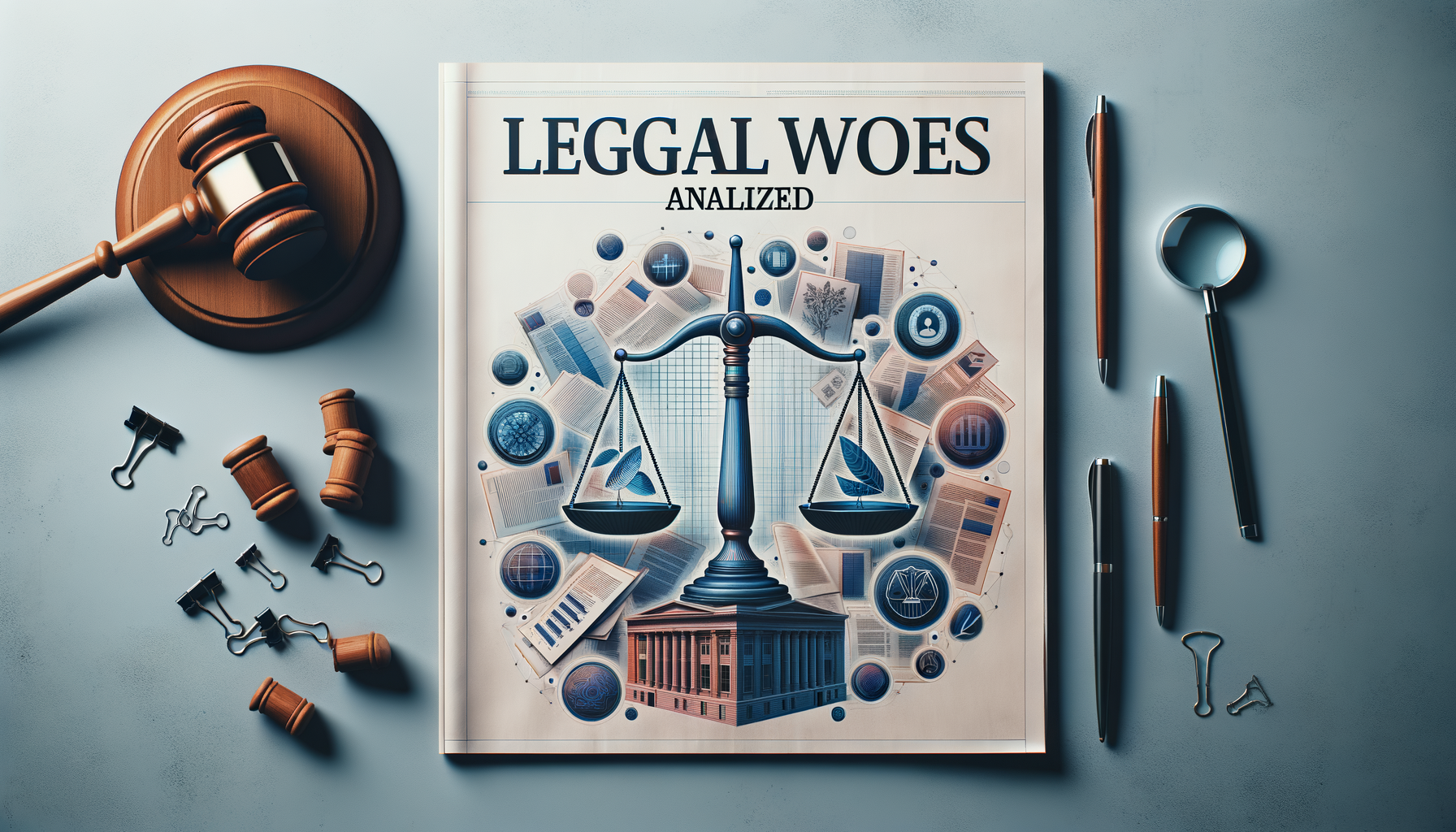Author: esquire
-
Alabama Law School 1L Study Guide for Criminal Law
Alabama Law School 1L Study Guide for Criminal Law I. Introduction to Criminal Law Purpose of Criminal Law: To deter wrongful behavior, punish offenders, and maintain social order. Burden of Proof: Prosecution must prove the defendant’s guilt “beyond a reasonable doubt”. Sources of Criminal Law: Statutes (Alabama Criminal Code), case law, and the Model Penal…
-
Alabama Law School 1L Study Guide for Contracts
Alabama Law School 1L Study Guide for Contracts I. Introduction to Contracts – Definition and Purpose: A contract is a legally enforceable agreement between two or more parties. The purpose of contracts is to create legal obligations that can be enforced in a court of law. – Elements of a Contract: To have a valid…
-
Alabama Law School 1L Study Guide for Constitutional Law
Alabama Law School 1L Study Guide for Constitutional Law I. The Constitution of the United States Overview of the U.S. Constitution: Understand the structure, including the Preamble, the seven Articles, and the 27 Amendments. Note the significance of Articles I-III, which establish the legislative, executive, and judicial branches, respectively. The Supremacy Clause (Art. VI, Cl.…
-
California Law School 1L Study Guide for Torts
California Law School 1L Study Guide for Torts Introduction to Torts Definition: A tort is a civil wrong, other than a breach of contract, for which a remedy may be obtained. Purpose of Tort Law: To provide a remedy for injury or damages caused by one party to another. Types of Torts: Intentional, Negligent, and…
-
California Law School 1L Study Guide for Property
California Law School 1L Study Guide for Property I. Introduction to Property Property law concerns the rights and interests in tangible and intangible items. Fundamental to the concept of property is the notion of ownership, which includes the rights to possess, use, exclude others from, and dispose of the property. II. Possession and Ownership A.…
-
California Law School 1L Study Guide for Legal Research and Writing
California Law School 1L Study Guide for Legal Research and Writing Legal Research: Primary Sources: Understanding the binding authority of statutes, regulations, and case law, particularly as they apply to California law. California Constitution: Foundational document of California state law. California Statutes: Laws passed by the state legislature, found in the California Codes. California Case…
-
California Law School 1L Study Guide for Criminal Law
California Law School 1L Study Guide for Criminal Law I. Principles of Criminal Law A. Actus Reus (the act) – Definition: A voluntary physical act, or a lawful act done in an unlawful way. – Omission as actus reus requires duty to act, created by statute, contract, relationship, or voluntary assumption of care. B. Mens…
-
California Law School 1L Study Guide for Contracts
California Law School 1L Study Guide for Contracts I. Introduction to Contracts Overview: Contracts are agreements enforceable by law. In California, as in other jurisdictions, contract law is a mix of common law principles, statutory law (such as the California Civil Code), and specific uniform acts adopted by the state (like the Uniform Commercial Code…
-
California Law School 1L Study Guide for Constitutional Law
California Law School 1L Study Guide for Constitutional Law I. Introduction to Constitutional Law – The Constitution as the Supreme Law of the Land – Principles of judicial review established in Marbury v. Madison (1803) – The structure of the U.S. government: separation of powers and federalism II. The Judicial Branch and Judicial Review –…
-
California Law School 1L Study Guide for Civil Procedure
California Law School 1L Study Guide for Civil Procedure Introduction to Civil Procedure Civil Procedure involves the set of rules and processes by which civil cases are processed through the court system. In California, as in other U.S. states, civil procedure is governed by state statutes, rules of court, and case law. It is important…
-

USA v. Sam Bankman-Fried
Brief Summary of the Case (IRAC Pattern) Issue: The central issue in the case of USA v. Sam Bankman-Fried is whether the defendant, Sam Bankman-Fried, engaged in illegal activities, including wire fraud, securities fraud, conspiracy, and money laundering, in relation to the operation of his cryptocurrency exchange and trading platform. Rule: The relevant legal rules…
-

New York Attorney General vs. Gemini
Brief Summary (IRAC Pattern) Issue: Did Gemini, a cryptocurrency exchange, engage in fraudulent, deceptive, or illegal practices in violation of New York law, specifically concerning the security, stability, and reliability of its services? Rule: Under New York law, the Attorney General has the authority to investigate and take action against businesses engaging in fraudulent activities.…
-

Legal woes of Celsius
Brief Summary of the Case: The Legal Woes of Celsius Issue: The primary legal issue in the case of Celsius revolves around whether the actions taken by the cryptocurrency lending platform were in violation of securities laws, resulted in a breach of contract, or constituted fraudulent activities that led to significant financial losses for its…
-

SEC v. Coinbase
Case Name: SEC v. Coinbase Brief Summary (IRAC Pattern): Issue: Whether Coinbase, a digital asset exchange, engaged in activities that violated securities laws by allowing the trading of assets that should have been registered as securities. Rule: The relevant legal rules stem from the Securities Exchange Act of 1934 and the Securities Act of 1933,…
-

SEC v. Binance
IRAC Summary Issue: The primary issue in the case is whether Binance, a cryptocurrency exchange platform, violated securities regulations as enforced by the Securities and Exchange Commission (SEC). Rule: The legal rule involves the application of federal securities laws, particularly the Securities Act of 1933 and the Securities Exchange Act of 1934, which require the…
-

The US Federal Trade Commission vs. Bitcoin Funding Team
IRAC Summary: Issue: Whether the Bitcoin Funding Team engaged in deceptive practices in violation of the Federal Trade Commission Act by operating a pyramid scheme that promised high returns on investments in Bitcoin. Rule: The Federal Trade Commission Act prohibits unfair or deceptive business practices. A pyramid scheme is considered a deceptive act, where returns…
-

Santander Bank vs. Mercado Bitcoin
Case Summary: Santander Bank vs. Mercado Bitcoin I. Issue The central legal issue in Santander Bank vs. Mercado Bitcoin is whether Santander Bank’s termination of Mercado Bitcoin’s bank accounts constituted a violation of contract or banking law, and if such termination was justified based on regulatory compliance concerns associated with cryptocurrency transactions. II. Rule The…
-

The Supreme Court of India vs. The Reserve Bank of India
IRAC Summary: Issue: Whether the Reserve Bank of India’s (RBI) action of prohibiting banks and financial institutions from providing services in relation to virtual currencies is legal and constitutionally valid. Rule: The relevant legal provisions include: 1. The Constitution of India, particularly Article 19(1)(g) that guarantees the freedom to practice any profession, or to carry…
-

The US vs. Ross William Ulbricht
IRAC Summary: Issue: Whether Ross William Ulbricht is guilty of creating and operating the online black market Silk Road, which facilitated the sale of illegal drugs and other unlawful goods and services. Rule: The government must prove beyond a reasonable doubt that Ulbricht created and managed the Silk Road website, and that he intended to…
-

Harrison Hines vs. Joseph Lubin
IRAC Summary: Issue: Whether Joseph Lubin breached a contract with Harrison Hines or committed any other actionable wrong in relation to their business dealings. Rule: The elements required to establish a breach of contract are the existence of a contract, the plaintiff’s performance or justification for nonperformance, the defendant’s breach, and resulting damages to the…